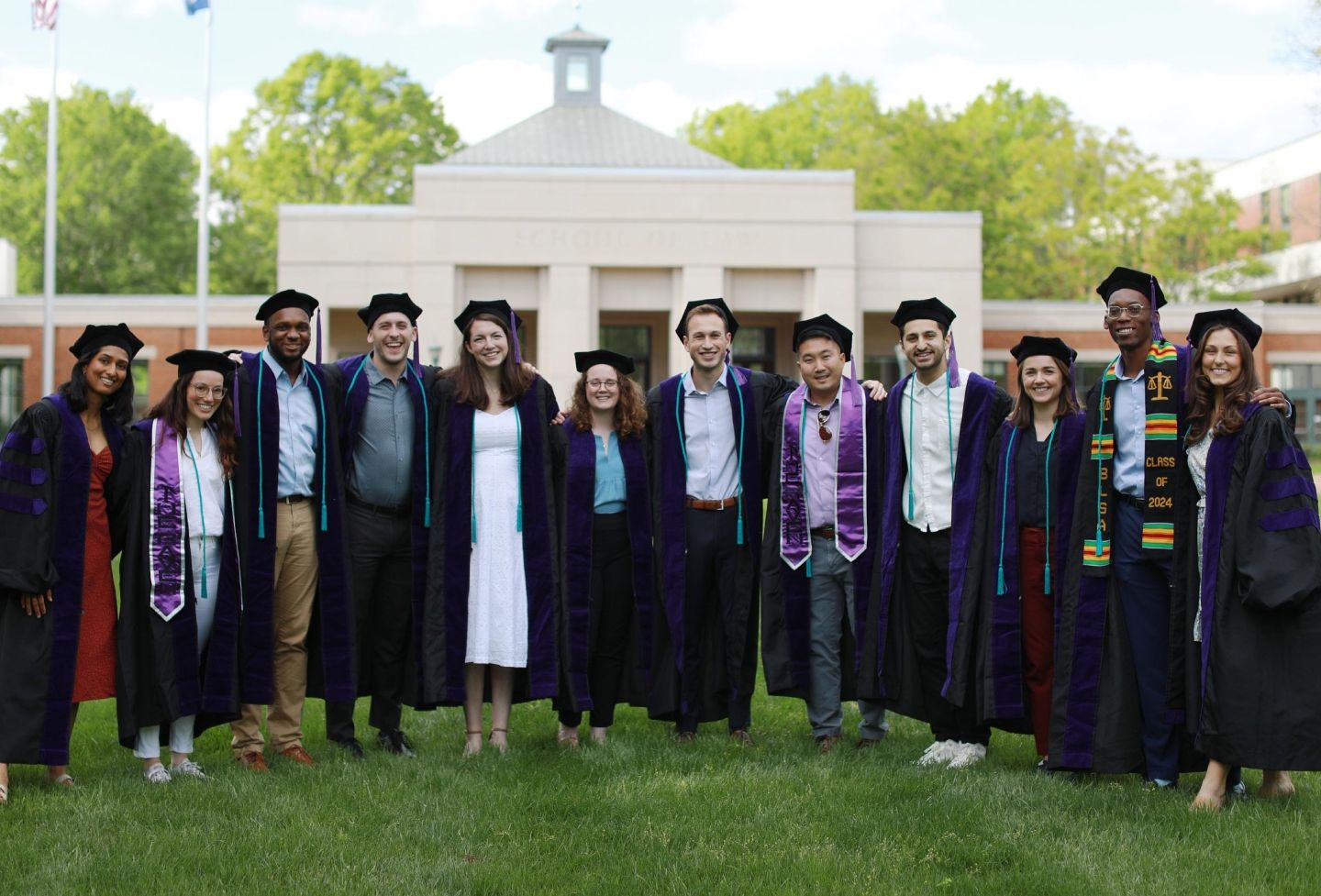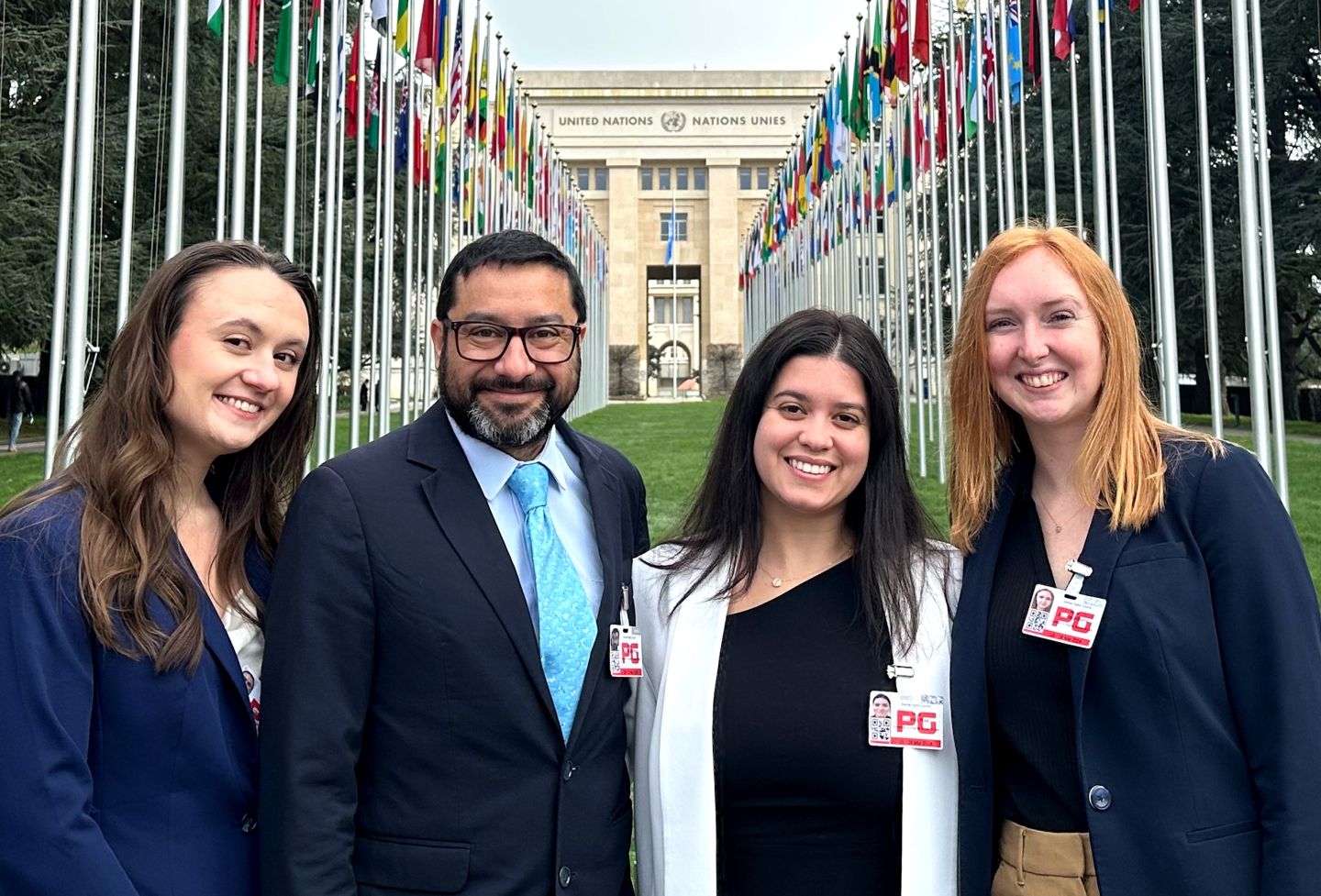Wald Sees International Tribunals Evolving Toward "Hybrid" Courts
 International tribunals for trying war crimes and crimes against humanity are likely to evolve toward "hybrid" courts in which international judges sit on panels with national judges in the affected country, said Patricia M. Wald, recipient of the 2005 Thomas Jefferson Medal in Law in a speech at the Law School April 12.
International tribunals for trying war crimes and crimes against humanity are likely to evolve toward "hybrid" courts in which international judges sit on panels with national judges in the affected country, said Patricia M. Wald, recipient of the 2005 Thomas Jefferson Medal in Law in a speech at the Law School April 12.
Besides being extremely costly and ponderous, the international tribunals formed to try leaders of genocides in the Balkans and Rwanda have gained little credibility with the victim peoples, she said.
Wald served in The Hague, Netherlands, as the American judge on the International Criminal Tribunal for Yugoslavia from 1999 to 2003, having served as a judge on the U.S. Court of Appeals for the D.C. Circuit for the previous 20 years, including six as Chief Judge. "One of [the tribunals'] greatest failures has been their inability to touch the hearts and minds of those who were victims of the leaders and their subordinates who committed war crimes," she said. "Poll after poll show the Balkan people don't think the ICTY has had any impact on their lives." Ironically, she noted, Milosevic, the brutal Yugoslav leader who was the main target of the tribunal, has won a seat in Serbia's parliament as a result of sympathy aroused by having his trial broadcast into the country.
In the last 10 years, the United Nations formed two international tribunals to try those associated with wartime atrocities in Yugoslavia and Rwanda, the first such courts since the Nuremburg trials that followed World War II to try Nazi leaders. A number of so-called "hybrid" or internationalized national courts that combine international and national judges were also created in Kosovo, Sierra Leone, East Timor, and soon in Cambodia.
"It's quite a phenomenal development," Wald said. "I think they provide cause for hope and satisfaction."
The United States took a lead role in establishing the ICTY, especially in funding it and devising its policies. The tribunal's 11 judges were selected by the United Nations and its prosecutors by the U.N.'s Security Council. Judges worked in three-member panels with appeals heard by a five-judge panel. The tribunals could only try individuals, not states, for war crimes and crimes against humanity. Crimes brought before the ICTY had to be committed on Yugoslav territory after July 1991.
Because the judges come from different judicial systems, the rules of procedure and evidence are a mix of common (derived from English tradition) and civil law (based on French rules). Court sessions were conducted in French and in English. (Wald was in a French chamber.) There were no juries and no ban on hearsay. Prosecutors could appeal acquittals (even American prosecutors did) and new evidence could be heard on appeal. Wald described the procedures as "remnants of both systems."
The ICTY's first trial, in 1996, took five years to start because the court had trouble getting suspects turned over to them by the countries where they had taken refuge. But since then, 100 suspects have been publicly indicted (an unknown numbers have been secretly indicted), more than 50 trials completed, 30 appeals finished, 18 people have completed their sentences, and 14 others are now serving terms. Most trials took over a year.
Wald said she was bothered by the lack of precedent or statutory base to rely upon. "Judges were left pretty much on their own to discern what international humanitarian law required," she said. "We weren't bound by Nuremberg.
"We encountered hundreds of questions that no one had yet decided and often had to wait of appeal rulings." But she was strongly motivated by the "thousands of victims who looked to us for vindication and some kind of closure in their lives" and noted that she presided over the first conviction for genocide by a tribunal. "I felt my time was well spent and I still think so."
International courts have experienced a "rapid evolution" since being modeled by the Nuremberg trials, she said. "The notion of individual criminal responsibility for war crimes and crimes against humanity was probably the singular contribution of the Nuremberg trials to international criminal law and the rock bed on which future international criminal courts have been built."
In the meantime, modern history has seen the spread of civilized norms: the adoption of the Geneva conventions on treatment of civilians and captured combatants, the adoption of conventions against torture and genocide, and the the spread of human rights theory to compete with traditional concepts of state sovereignty.
These new norms needed a forum for adjudication outside any one nation's control and, combined with international pressure for accountability to crimes against innocents, they "midwifed" the creation of the ICTY, Wald explained.
But why can't nations punish their own war criminals? "On the whole, national prosecutions have been few and many years after the fact," she said. "People want to get on with their lives. Many countries don't have the will or resources to bring offenders to justice."
She digressed to say that, as a trainer of the Iraqi judges who will conduct the trial of Saddam Hussein (which includes simulated trial training), she believes they are "truly dedicated to doing a credible of job bringing their own wrongdoers to justice." They are acutely aware of their personal danger-one was recently assassinated with his son-yet "their resolution seemed firm."
They have a problem following the relevant rulings of international courts because those decisions have not yet been translated into Arabic.
The track record of national courts is spotty. Wald cited as an example the Indonesian court created to deal with the killings of 1,500 East Timor citizens. It formed only under international pressure and its jurisdiction was limited to crimes committed during a two-month period in 1999. The highest-ranking army officer involved was not indicted. "The trials were considered a travesty by outside observers. There was no attempt to follow the chain of responsibility in the military commands. The worst sentence was 15 months. There were no witness protection measures. The outcome of 18 trials was 12 acquittals, four convictions reversed on appeal, and now one person is serving a three-year term."
Only now, 25 years after 2 million were killed by the Khmer Rouge, has the Cambodian government agreed to form a court to try the surviving Khmer Rouge leaders, Wald lamented.
She credited the truth and reconciliation commissions created in South Africa, where victims and perpetrators confront each other, with "proving quite successful," in part because they are "combined with a back-up ability to try those who don't tell the full truth."
Their defect is that they are seen by some "as an excuse for not doing a real trial. My own view is that TRCs may help to fill the impunity gap between those who get charged and the rest who were involved but can't be logistically handled by any court. It holds them to a greater sense of responsibility for their crimes.
"The hybrid court is the likely wave of the future," she predicted. "We'll not ever see another court modeled after the ICTY and ITCR. They've proven just too expensive, slow and bureaucratic." The two courts together cost $250 million annually and have more than 2,000 employees.
Hybrid courts located in the country where the crimes took place with a majority of national judges would be "designed to prosecute the highest-level offenders and to insulate local judges against intimidation." She called the Sierra Leone hybrid court's record "promising."
Lack of resources is the greatest obstacle to the success of such courts, she said.
"If they fail, I fear it will serious deflate any pretensions for the practical significance of international criminal humanitarian law. The United States was until recently a leader in their creation and development. Stepping away from that unique place in the field leaves a yawning gap. One can only hope future leaders will recognize the critical need for war crimes accountability in an increasingly interdependent world that continues to yearn for justice but is in danger of becoming quite cynical about the feasibility of achieving it."
Wald received the Thomas Jefferson Foundation Medal in Law from University President John T. Casteen III at Founders' Day ceremonies in the Rotunda Dome Room on April 13.
The Thomas Jefferson Medal in Law and its counterpart in architecture recognize lasting contributions in fields that were of great interest to the University's founder. The awards are the highest outside honors given by U.Va., which does not grant honorary degrees.
Founded in 1819, the University of Virginia School of Law is the second-oldest continuously operating law school in the nation. Consistently ranked among the top law schools, Virginia is a world-renowned training ground for distinguished lawyers and public servants, instilling in them a commitment to leadership, integrity and community service.


